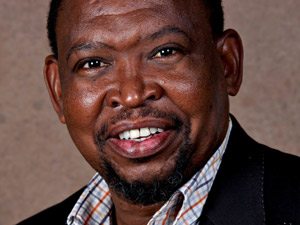
[miningmx.com] – AS the Chamber of Mines prepared to lodge its comments on cabinet-approved amendments to South Africa’s mining legislation, the head of the ANC’s economic transformation committee, Enoch Godongwana, expressed reservations the industry had room for manoeuvre.
“There has been agreement on those amendments and I doubt they will be tampered with,’ said Godongwana, who is also a member of the ANC’s national executive commitee.
Said an MP serving on the portfolio committee on mineral resources: “Because cabinet already approved the proposed amendments it’s improbable the Department of Mineral Resources (DMR) will implement drastic changes’.
“At most they might remove ambiguities and tweak the wording a bit to soften the blow,’ he said.
The amendments to the Minerals and Petroleum Resources Development Act (MPRDA), first promulgated in 2002, were finalised in December. The mining industry has until February 8 to respond to the amendments.
However, Nic Borain, a political analyst at BNP Paribas Cadiz Securities, was upbeat that the government would be accommodating.
“Often in the law-making process there is scope government builds in for compromise. Obviously a lot of compromises have taken place prior to the formation of an actual bill.’
He said the government would have to privately engage with the mining companies. “Given the content of the Bill I think there are significant problems that some of the mining companies and some of the petroleum and gas exploration and production companies might have with some of the provisions in the bill. So, yes, I do think there is scope for changing it.’
Although the proposed restructuring of Anglo American Platinum (Amplats) has raised the temperature with regard to relations between government and the mining sector, Borain said the dispute had to be seen against a backdrop of much broader negotiations between government and the mining companies.
“Obviously the issues on the table for changes to government’s mining legislation would also include the resource rent tax, and the level at which it kicks in,’ he said.
“It’s not impossible that in the minds of Anglo American and government, the kind of language and posturing is part of the negotiations around the general shifting in the ANC policy documents and the MPDA amendments, and on the incredibly strong emphasis on beneficiation.
“It’s part of a give and take. If Amplats decides to compromise on the closure of the four shafts and the laying off of the 14,000 workers – in a way, that would be part of something of Amplats’ give and take.’
Borain cited Arcelor Mittal’s decision to close two blast furnaces in Florange, France recently as an example. “It was part of major cut-backs and they had a war with the French government around that, but a compromise was reached. After very, very vigorous and confrontational language they agreed to hang on to a couple of jobs and the government agreed to some investment and there was a compromise reached.
In terms of the process, the DMR would have to ensure the amendments in the bill were constitutional and not in contravention of existing legislation, such as the Promotion of Administrative Justice Act (PAJA) – a law that holds the administration accountable to people for its actions.
Government has argued that the amendments to the MPRDA were meant to provide greater clarity on mines minister, Susan Shabangu’s discretionary powers over the beneficiation of minerals. But does it?
One of the problems with the existing MPRDA of 2002 is precisely that there’s too much discretion which is in some instances unguided, critics such as minerals lawyer Peter Leon have said. Industry players say there’s a question mark as to whether the amendment bill will really provide clarity on the minister’s discretionary powers.
Fred Gona, ANC MP and chairperson of the mining portfolio committee, said it was going to be a while before the amendments will become law.
“It’s still in the DMR’s domain. Only once they’ve completed the public comments process to find out what is the feeling of the stakeholders parliament gets to see the draft bill. We will then start formal public hearings, looking at making the bill into a law,’ he said.
Parliament will hold its own set of public hearings and depending on the extent of interest from the public, they may visit remote areas and solicit the views of concerned people. “But it’s going to be a long process,’ Gona said.










